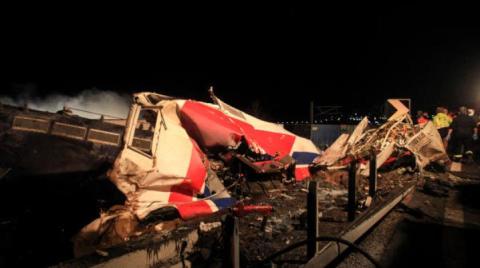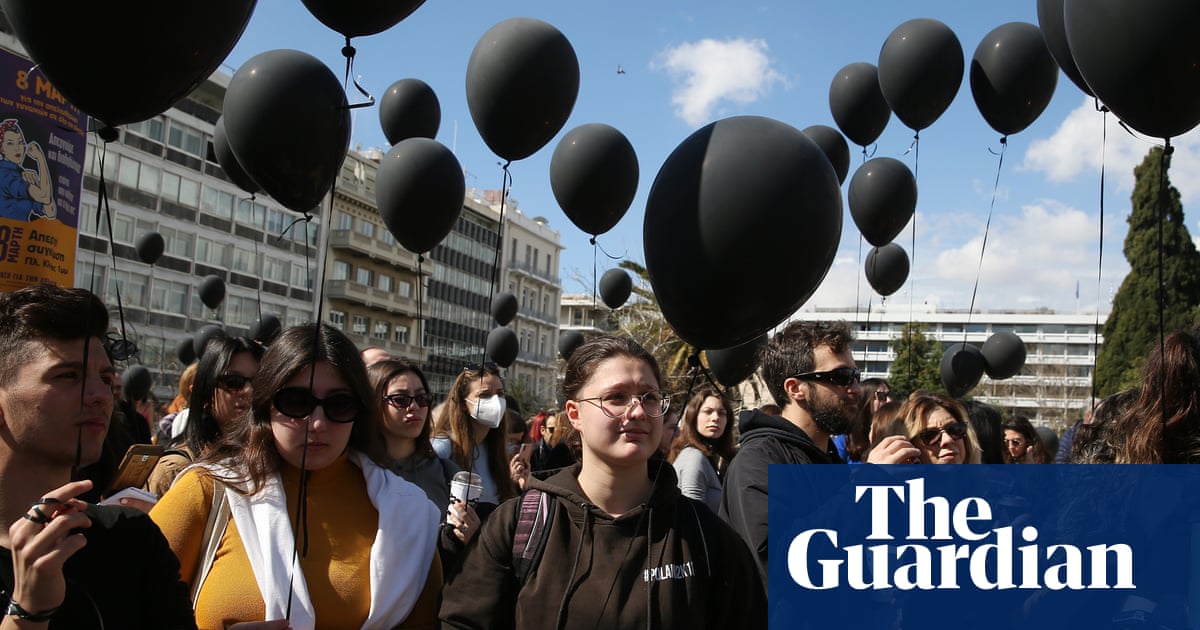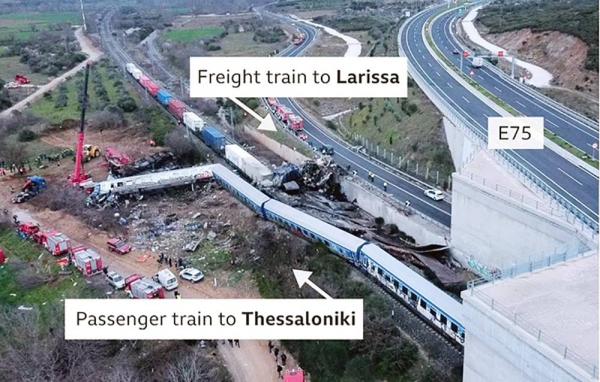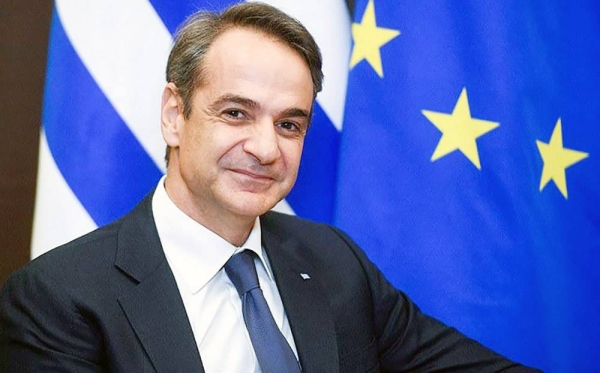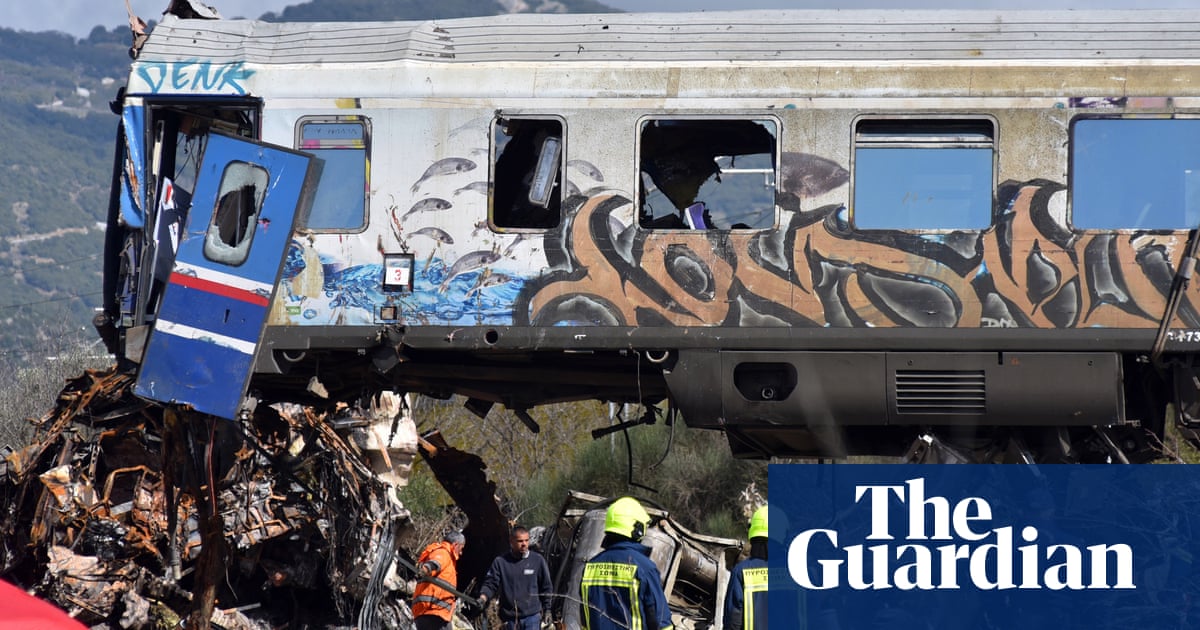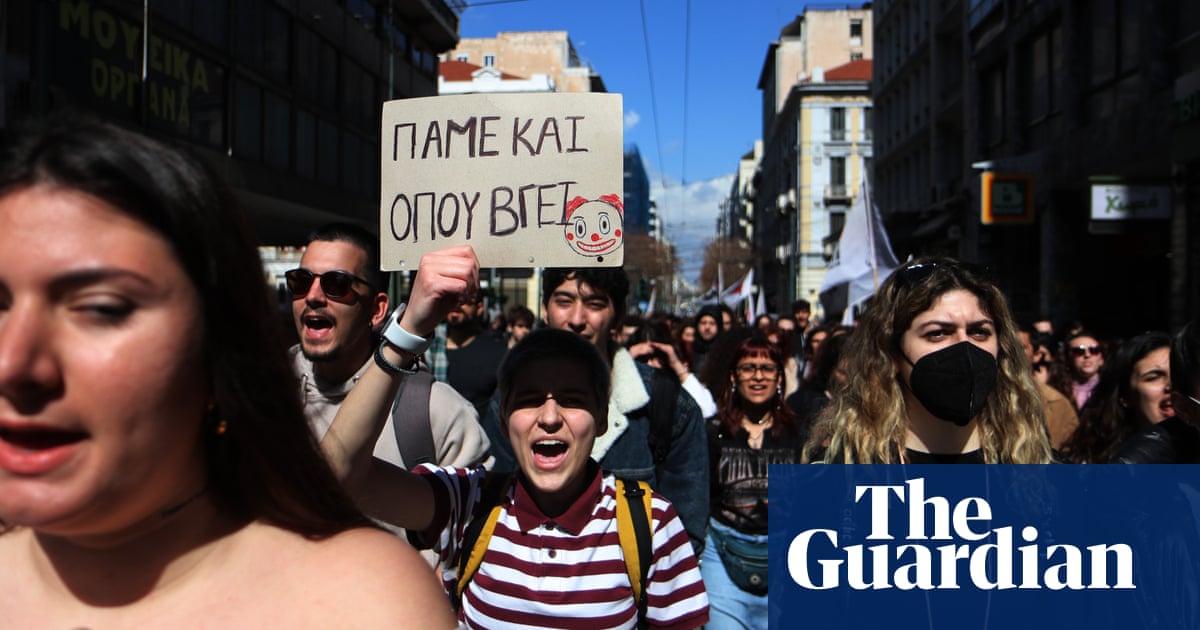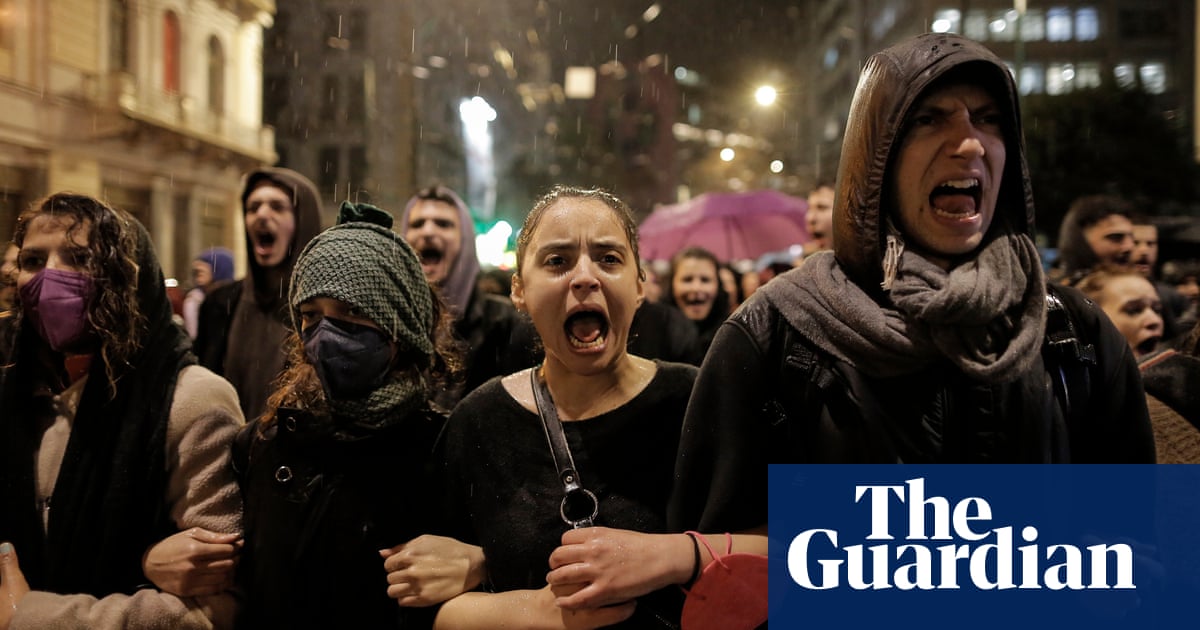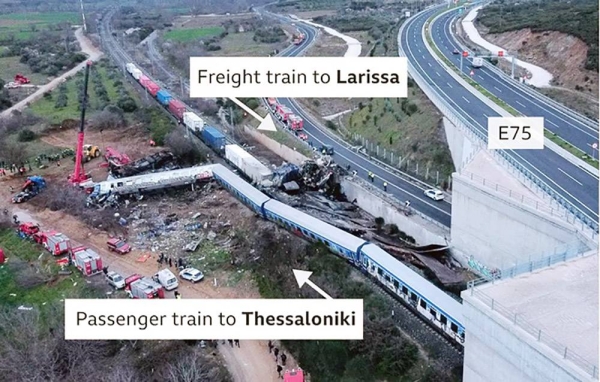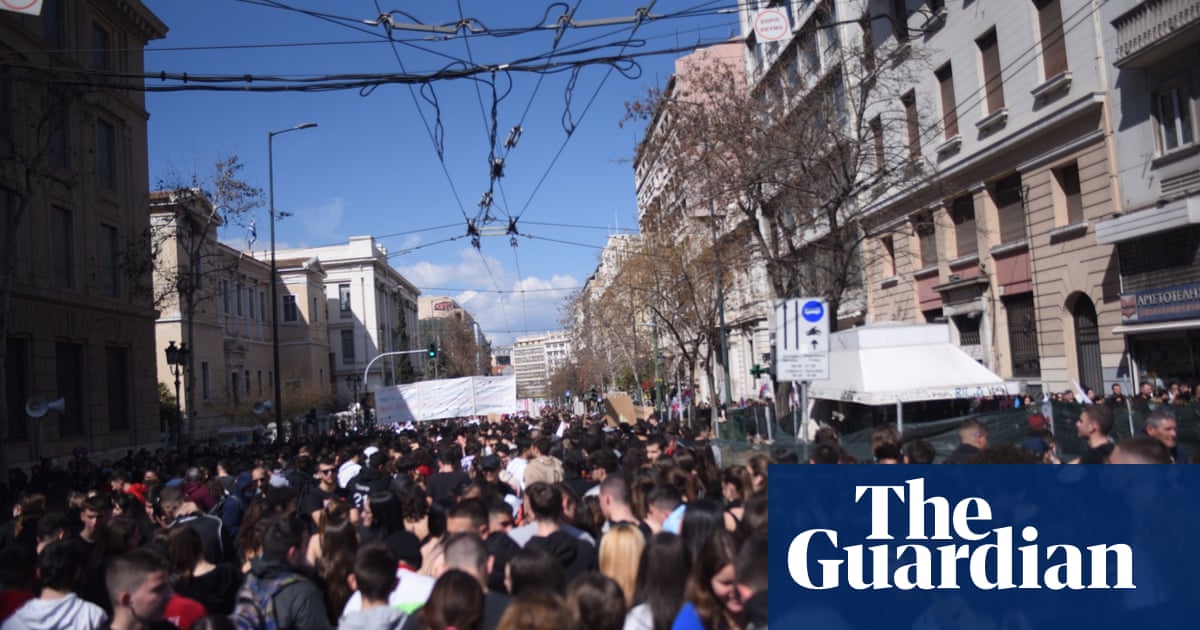
A further three railway employees are to face criminal charges in connection with the train crash last week, Greece’s worst ever, that left 57 dead and scores injured.
Judicial authorities investigating the head-on collision of two locomotives in Tempe pressed the charges as outrage over the tragedy showed little sign of abating. Marching through Athens on Thursday, student protesters screamed “murderers” as they directed their fury at state officials blamed for an accident many believe could have been avoided had the nation’s rail network not been so neglected. Most of those killed were young with at least a third of the victims enrolled at university.
Nine days after the Thessaloniki-bound passenger train rammed into an oncoming freight train with 350 on board, Greeks are eager to see justice.
Magistrates overseeing an investigation into the causes of the crash said two of the officials charged on Thursday were station masters. Both had allegedly ended their work shifts early on the night of the incident, despite traffic being unusually heavy after a long holiday weekend. A supervisor accused of placing an inexperienced stationmaster on duty at the time of the crash was also indicted.
All three will stand trial for offences ranging from involuntary manslaughter to causing transport disruption and mass bodily harm – acts punishable with life in prison if they are found guilty. Similar charges were levelled on Sunday against the stationmaster who stands accused of making the fatal point switch that put the two trains on the same track. Audio extracts published by the Greek media convey the 59-year-old’s apparent confusion as concerned colleagues call to ask what has happened immediately after the collision.
News of the indictments filtered through as the prime minister, Kyriakos Mitsotakis, held his first cabinet meeting since a period of national mourning and promised “absolute transparency” as the inquiry into the tragedy intensified. The centre-right leader, whose four-year term in office ends in July, has faced a backlash as revelations highlighting the lack of proper safeguards, including a functioning signal system, have come to light.
Tens of thousands of people from Evros in the north to Crete in the south took to the streets on Wednesday as Greece was brought to a halt by a 24-hour general strike in an outburst of anger not witnessed since the anti-austerity rallies of the debt crisis.
Police estimated as many as 60,000 people joined protests called by labour unions and student groups in Athens and Thessaloniki alone.
Mass demonstrations are slated to continue, piling the pressure on Mitsotakis, whose reputation had already been hit by an eavesdropping scandal amid accusations, reiterated this week, of Greece backsliding on civil liberties, including press freedom, under his watch.
General elections that had been expected to take place in April have, in the face of the uproar, been rescheduled for May. Restoring trust in his credibility will depend to great degree on how he manages a crisis borne of tragedy.
On Thursday in televised comments, the embattled prime minister pledged to “move heaven and earth” to ensure the rail system was modernised in the coming months with automated safety systems.




